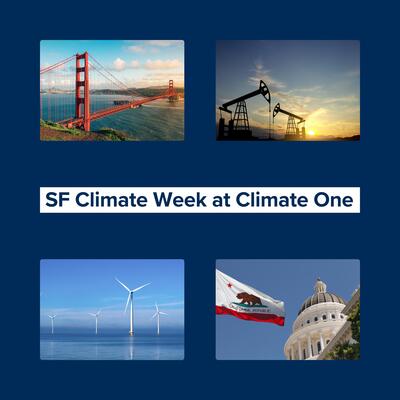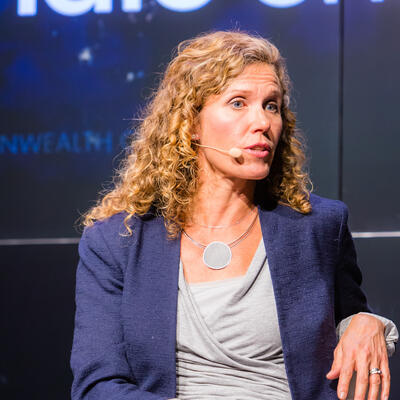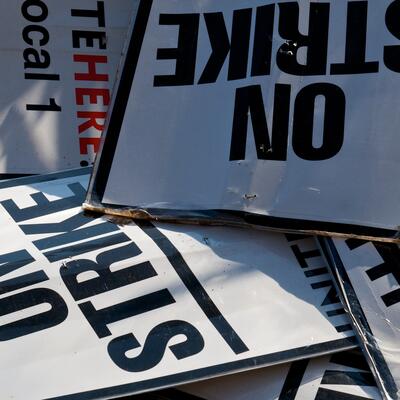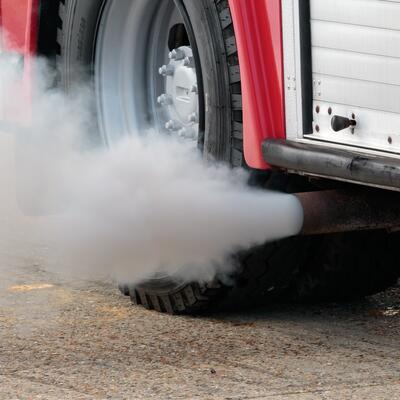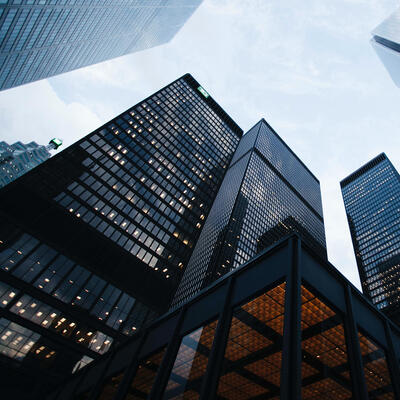
Corporate Net Zero Pledges: Ambitious or Empty Promises?
Guests

Simon Fischweicher
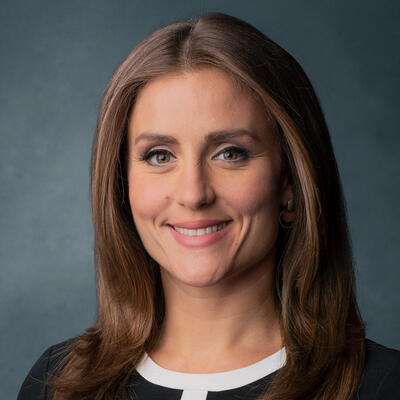
Kristina Partsinevelos

Darrel Stickler
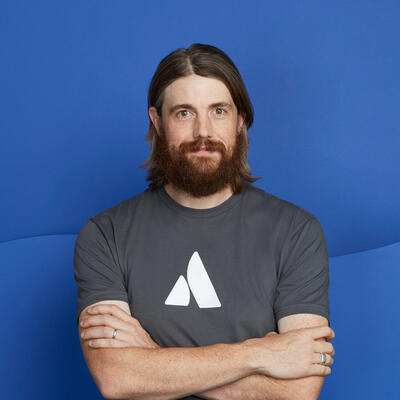
Mike Cannon-Brookes
Summary
One-fifth of the world's 2000 largest publicly traded firms have committed to net zero targets. Critics argue that such pledges are mere greenwashing, and even if pledges are fulfilled, the balance sheets usually utilize carbon offsets, which can be of questionable quality and accountability. Proponents of corporate net zero pledges say we’ll never get to net zero emissions without corporate action, and pledges represent legitimate ramping up of ambition and commitment. How can consumers, investors and policy leaders determine if these pledges are genuine attempts at hitting net zero goals? And is it possible for third party auditors to hold companies accountable?
Head of Corporations and Supply Chains for CDP North America Simon Fischweicher, CNBC Reporter Kristina Partsinevelos, and Global Lead for Environmental Sustainability at Cisco Systems Darrel Stickler discuss the actions corporations are taking and how meaningful they are.
Partsinevelos is skeptical that offsets used in the accounting, and the metrics by which they are measured, are sufficient.
“What stops a guy that owns a big forest to sell his forest five times to different companies and just say, oh, I’m gonna keep these trees going for you or else they would have been cut down,” she says.
Darrel Stickler believes the big changes required are only possible through big business adaptation:“I tell people hey listen, if you want to hug trees go work for a nonprofit. If you want to take on the challenge of figuring out how to fit sustainability profitably into business, come work for a big company.”
Companies are increasingly utilizing ESGs – environmental, social, and governance standards – to assess how well they are doing in these areas.
Simon Fischweicher tells us about the STOXX, a climate change leadership index.
“It actually uses CDP data to create several ESG-focused industries. And one in particular is the climate change leadership index that actually map CDP’s A-list and over a five-year period outperformed its global benchmark, which was a sort of global index about 1800 companies by 5.4%. Correlation, causation, can't say for sure and I do think the companies that tend to do well on CDP disclosure A-list companies tend to be well-managed businesses who are thinking about all elements of their business and managing those well. But I think it does send that good signal to the market that if you're investing in companies that are managing ESG issues at the top of their class, they are likely to be managing across the business as well.”
In 2019, 21% of Australia's forest burned in a single summer, and an estimated 3 billion animals were killed. For Mike Cannon-Brookes, co-founder and co-CEO of Atlassian, witnessing this devastation was both heartbreaking and galvanizing.
“You sort of think about these things like which fire is happening a long way away from you and it was like right up in, you know, Sydney the center of the city. And then as it spread to Mallacoota in the coastline area it sort of went through it sort of four, five different megafires that formed. If you haven’t seen the footage of the residents sort of fleeing to the beach and just the red wall behind them and they all got in boats and watched. It was just staggering to watch for anyone to watch. So, it’s very, very hard to see.”
He also discusses how the companies he’s involved with handle climate issues.
“I’d argue we are probably our hardest critics, it’s not a PR exercise to try to tell people how good we are. Trying to be as honest as possible and tell ourselves and the world where we’re actually at.”
This program is generously underwritten by the Erol Foundation.
Related Links:
Full Transcript
Greg Dalton: This is Climate One. I’m Greg Dalton. Many corporations are pledging to hit net zero emissions, but critics say these pledges are often mere greenwashing.
Kristina Partsinevelos: What stops a guy that owns a big forest to sell his forest five times to different companies and just say like, oh, I’m gonna keep these trees going for you or else they would have been cut down.
Greg Dalton: Proponents say we’ll never reach the Paris climate goals without corporations taking action, and pledges represent ambition and commitment.
Mike Cannon-Brookes: I’d argue we are probably our hardest critics, it’s not a PR exercise to try to tell people how good we are. Trying to be as honest as possible and tell ourselves and the world where we’re actually at.
Greg Dalton: Corporate Net Zero Pledges: Ambitious or Empty Promises? Up next on Climate One.
Greg Dalton: This is Climate One, I’m Greg Dalton. Corporate pledges to snuff out all carbon emissions sound like a great thing, but some critics argue that even if the pledges are fulfilled, most are achieved using carbon offsets, which can often be of questionable quality and hard to track. Proponents of corporate net zero pledges say we’ll never meet the Paris climate goals without corporate action, and pledges are legitimate representations of ambition and commitment. So how can consumers, investors and policy leaders determine if these pledges are genuine attempts at hitting net zero goals? And is it possible for third party auditors to hold companies accountable? I invited three guests to discuss these questions. Simon Fischweicher [Fish-why-ker], Head of Corporations and Supply Chains for Carbon Disclosure Project North America, Kristina Partsinevelos [Part-sin-NE-ve-los], a CNBC reporter covering ESG and net zero pledges, and Darrel Stickler, global head for environmental sustainability at Cisco Systems. This episode was supported in part by our friends at the Erol Foundation. In our conversation we use a few terms that I want to quickly unpack: First, ESGs, which stands for environmental, social, governance. That refers to a set of standards that companies and investors use to assess how well a company is doing in these areas. ETFs or exchange traded funds are a type of security like mutual funds, that can be traded like a stock on an exchange. We also talk a lot about emissions, which are classified into three levels: scope 1, which come directly from the company’s activities, scope 2, emissions from the energy used to power the company, and scope 3 emissions, which are those from activities further down the supply chain. These aren’t controlled by the company directly but still part of its overall carbon footprint, like how a product is used and disposed of at the end of its life. One-fifth of the world's 2000 largest publicly traded firms have committed to net zero targets. I asked Kristina Partsinevelos [Part-sin-NE-ve-los] if that is legitimately good news - and how important such targets are for decarbonizing the global economy.
Kristina Partsinevelos: Of course, it’s good news because finally, corporations are making part of their mandates, making that priority. They’ve created chief sustainability officers. They have people in positions to try to work on reducing emissions improve their supply chain so they're not as harmful to the environment. Having said that there is the positive I guess the negative is that a lot of it out there or not a lot of it some of it out there is a form of greenwashing where corporations are making these goals but they are not providing us with the steps of as to how they're going to achieve net zero by 2050 or by 2060 or 2040. And so, there are still kinks that need to be worked out because this is still somewhat of a nascent industry when you're talking about having corporations actually commit to it. And this is the first time we’re really seeing that. And so, it’s great it can really change the way things are going in the next, 10 to 15 years for future generations but there still needs to be a lot more details worked out.
Greg Dalton: Sure. And a lot of this is voluntary, and we’ll drill into those pledges in a moment. Simon, how do you see the symbolism of giant corporations all jumping on the net zero bandwagon as Kristina mentioned something we haven't seen before?
Simon Fischweicher: Yeah, I wanna acknowledge the importance of the momentum this is creating and the conversation that is moved to talking actually about net zero emissions. I think if you think about five years ago before the Paris agreement was signed at COP 21, I think this was a dream for those of us in the environmental field to have this level of conversation. The challenge is around the standardization of what those net zero pledges are and the lack of short to medium-term steps science-based targets they’re gonna keep us on a trajectory towards cutting emissions not in 2045, but halving them in the next decade.
Greg Dalton: Darrel Stickler, as a person with climate responsibility at a company with $50 billion in sales. What do you look for when you see a corporations says they’re going net zero they’re coming on all the time? You’re an insider, how do you give them kick their tires or give them a sniff test?
Darrel Stickler: The first thing I look for is what's the scope of the commitment. And the next is I look for some evidence that they understand what net zero means this concept that I just described. If I see too many uses of the word offsets, I scratch my head and I start to dig a little deeper. What does offset mean?
Greg Dalton: Simon, companies can play around with their expenses and thanett income in order to avoid taxes all sorts of ways to do that. Money is tangible, trackable, carbon dioxide is this odorless and invisible gas. So, how much confidence should we have in companies tracking and eliminating this odorless invisible gas?
Simon Fischweicher: I think that's a great question. It leads us to some of the problems, particularly on the Scope 3 side of net zero where it is difficult to actually calculate those emissions because much of that is coming outside of a company's boundaries. However, when I think about my own organization and how we look at a company you need to have at least 70% of your scope 1 and 2, those direct operational emissions externally verified to be on our A-list. And what that means is it sort of like getting your audited financials, right, you're having a third-party come in and check your work and identify that the emissions you’re providing are actually accurate. And so, I think that's a really important signal to the marketplace that you’re providing accurate emissions to your stakeholders. When we get into Scope 3, I think that's a little bit more of the challenging area because relying on your supplier emissions or estimations perhaps if you’re thinking about an automobile manufacturer, they might be calculating emissions based on the use of their cars with people driving them. There's a lot of factors that come into getting that number exactly right. The issue right now, that number is so big what we really need is to make it go down significantly. So, maybe not getting too wrapped up in the you know the exact number at this point.
Greg Dalton: Kristina, do these kinds of things do they move stock prices or is this, you know, just kind of a niche thing that really insiders talk about? This is really, you know, drive news. Does it drive stock prices?
Kristina Partsinevelos: If you are purposely investing in ESG related ETFs and funds like that maybe there seems to be new data coming up for that particular fund, maybe. But in general, unfortunately at this point no, unless there's a huge environmental disaster. Then you would have a huge movement in the stock price. But what we've seen now is yes, we’re talking about it and it's great but it’s still not priority number one, like it's not really moving the needle that much when it comes to stock price, especially when there's so many various ESG scores. But, yeah, we’re not there yet.
Greg Dalton: And ESG is environmental, social, governance and we’ll unpack that a little bit. Simon, many companies publicly say they support climate action or a carbon tax. And there are lobbyists privately work really hard to make sure that that doesn't happen. We’ve seen that recently with companies saying these net zero pledges but they’re lobbying against the energy bills or infrastructure packages perhaps because it raises taxes to raise money for those clean energy investments. So, does Carbon Disclosure Project or CDP track corporate lobbying so that companies there are some kind of accountability for what they say publicly and what they do in the halls of Washington?
Simon Fischweicher: Yeah. Ultimately, CDP is voluntary reporting effort and disclosure system. And so, you know, we may not be directly tracking that and digging into their efforts, but we do have a component of our questionnaire that addresses public-policy engagement or companies are reporting on alignment with different industry organization positions on climate they may be a part of and meant to be discussing which public policy they may be supporting or sort of unsure of. And so, it’s a good reference point if you're looking at a company’s public CDP disclosure and looking at their policy engagement and how they’re discussing their work with resource organizations or industry groups to check that to some of the news you’re hearing and dig a little bit deeper into whether or not that's actually consistent with what their climate positions they’re saying are.
Greg Dalton: So, Kristina, how much credibility do you put in these kinds of voluntary unaudited disclosures?
Kristina Partsinevelos: Well, because my follow up question to Simon would have been right there. So, then who’s the third-party do you have one particular third-party that you’re using or firms using a bunch of different ones? And then it begs the question as to how they are what methodology are they using? I’m just like asking you the question not trying to be a pain in the butt. But, it’s usually a common problem with the rating firms the voluntary carbon offset platforms that are out there. Just there are so many different people doing it that there is no set methodology. And so, how do you guys deal with that?
Simon Fischweicher: Yeah, CDP has been around for 20 years. And our goal has been the same in that entire time. To provide a standardized comparable mechanism for tracking not only emissions from a quantitative perspective, but that full spectrum of climate management, right. And so, from a verification perspective we’re not dictating which firm or companies to work with but we’re dictating what information needs to be provided as part of the verification.
Greg Dalton: Darrel Stickler, Cisco plans to reach net zero emissions by 2040, a decade ahead of many companies. Are you going to have a third-party auditor look at those numbers and why should anyone believe Cisco when there's so much greenwashing going on and it's not clear that there’s a cop on the beat, right?
Darrel Stickler: I think we’re overstating greenwash. Greenwash is an issue for sure. But there's a lot of companies that are putting a lot of money and attention and top talent into this issue of carbon accounting. So, they get a little technical so there is a Scope 1, 2 and 3 emissions and let me just start with Scope 1 and 2. So the large financial companies, the accounting firms they do this auditing as well as specialized environmental consultancies. And they issue formal letters of, you know, their assurance and the scope and so forth, and we publish ours on our website so people can see this is what scope and this what they concluded. We’ve set a number of public goals, environment goals since 2008 and we've always had a policy that we have a public goal we’re gonna get third-party assurance because we recognized early on that us saying something well, we would hope that people would believe us but the truth is they want to have that third-party assurance.
Greg Dalton: And in the next six months corporations will have to start submitting their proposals to an organization. This gets kind of technical but it's the science-based target initiative so there’s this organization that companies will report to. Is that starting to get in the direction, Darrel, and what does that mean for companies that might be kind of, you know, inflating their numbers?
Darrel Stickler: So, SBTi is an organization that gets the goals right. And if you go to their website, you'll see there's hundreds, maybe thousands of companies whose goals are registered with SBTi. And you get registered there by submitting lots of information. It’s very painful. It took us about four months to meet all their information requirements. And they say that yes, your scope, your wording, your intent meets the requirements they published guidelines. And there's a similar thing for net zero they just came out last month. Don’t know the official title, but it's basically net zero guidelines by SBTi and you can go in there and read. If you want to say that you have a net zero goal that's SBTi approved this is what to ask and tell. So, that's what SBTi is for to make sure that these goals are properly framed.
Greg Dalton: So, things were kind of in these very early days starting to get some organizations and some early standards. Kristina, some companies say they are aiming for carbon neutral rather than net zero. As someone who carefully examines numbers and purses words issued by corporations. How do you see the emerging terminology of this conversation?
Kristina Partsinevelos: Oh, I think just like Darrel mentioned it’s gonna probably have to come from some platform that everyone is using. And if they come out with the definition then finally, we’ll get something that's concrete. You have the SEC that’s looking into it, but there's no federal mandates. I know the EU has more stringent rules. Somebody needs to come out with proper terminology. I don't know when that's gonna happen even when researching and writing a story or doing this on air, the amount of definitions that I could've used were ridiculous and instead I just went for a visual like a circle of how net zero is gonna be defined. I don't know who’s gonna go with the definitions somebody’s got to make it official and then we can all start using the same one. But right now, yes, like you mentioned there's carbon neutral and I’m sure both Simon and Darrel can speak more to the details of that or I guess the technical aspect of it. But it's not all the same, and companies know this, which is why they're taking in, not all, and I’m not greenwashing or saying that it’s all greenwashing, but the companies are sure to pick and choose how they word their marketing statements or their promises to the consumers.
Greg Dalton: A lot of these pledges are made by CEOs who will not be in office when these pledges come due. So, how are these companies held accountable and is executive pay tied to these commitments?
Simon Fischweicher: This is something that's really, you know, an important role for CDP to play where we have this voluntary disclosure where companies are reporting annually not only making that commitment getting the flashy lights with the announcements in the news; they have to report on that annually when they commit to setting a science-based target or have a net zero target. And that mechanism that most companies use is their CDP disclosure. But if you really dig into it, it’s not just hey we have this ambitious target, and we’re reporting on it annually but actually looking into governance structures and saying, is there a board level oversight of climate change at this company? Does the CEO have compensation tied to the achievement of the science-based target? And we have seen some companies I think HP Ink is one example, Canadian National Railway where in their disclosure they're saying we have a science-based target and our executive compensation is tied to achieving that science-based target. Obviously, that still runs into the problem that net zero by 2050 is none of our current CEO’s immediate problem and that's where setting that short to midterm science-based target that reduces emissions in the next 5 to 10 years in line with that trajectory towards managing 1.5° warming; we’re sort of avoiding the most dangerous aspects of climate change today, not just in 2050 is key.
Greg Dalton: Darrel Stickler, Cisco used to get dinged for not having board oversight over sustainability it now does. Is your pay and other Cisco executives tied to reaching carbon reduction goals at Cisco?
Darrel Stickler: So, the financial community has been increasing its attention to sustainability. I don’t know if people remember was it SIP sustainable investing, there is a special subset of analysts that just focused on sustainability. And that acronym I can’t remember what it is, it went away because now sustainability is mainstream. So, the financial community has just been ramping up so Cisco added social responsibility which includes ESG through our nomination and governance committee written it. And last year, our FY21 ended in July. So, now our executives the name executives have ESG as one of their it’s called individual performance factor. It’s one of the things where they multiply these factors together to come up with the cash bonus or cash compensation. And so, ESG is now part of the name executives compensation.
Kristina Partsinevelos: But then just for the social part, Don’t you find it difficult to measure that even within Cisco? Just because it’s quite qualitative versus quantitative?
Darrel Stickler: Well, I know the inclusion adversity it’s very quantitative because we publish multiple tables breaking down our employee base different ways by gender by minority at different levels of the company. But the whole trick of this whole sustainability ESG corporate responsibility is to figure out how to take it from subjective and put some numbers against it so you can set goals and measure your performance. Some people overstate it to may be dismiss it, but a lot of sustainability is finding hidden values. When you look at diversity for example, that can be taken to an extreme. But the truth is is you want to understand your customers, you want to maximize your access to different suppliers, you want to have a very diverse employee base because you have a very diverse customer base. These are all things that are good for the business. I tell people hey listen, if you want to hug trees go work for a nonprofit. If you want to take on the challenge of figuring out how to fit sustainability profitably into business come work for a big company.
Greg Dalton: You’re listening to a Climate One conversation about corporate pledges to hit net zero emissions. Our podcasts typically contain extra content beyond what’s heard on the radio. If you missed a previous episode, or want to hear more of Climate One’s empowering conversations, subscribe to our podcast wherever you get your pods. Coming up, the squishy calculations of net zero goals that rely on carbon offsets:
Simon Fischweicher: I think offsets and building a market around offsets has a really important role. If someone's net zero pledge is heavily reliant on offsets to get from today to where their net zero commitment has them in the future, to me without those standards that's very problematic.
Greg Dalton: That’s up next, when Climate One continues.
Greg Dalton: This is Climate One. I’m Greg Dalton. We’re talking about corporate net zero emission pledges with Simon Fischweicher, Head of Corporations and Supply Chains for Carbon Disclosure Project North America, Kristina Partsinevelos, a CNBC reporter covering ESG and net zero pledges, and Darrel Stickler, global lead for environmental sustainability at Cisco Systems. I asked Simon Fischweicher to tell us about the STOXX (that’s spelled S-T-O-X-X) climate change leadership index–another tool to help gauge a company’s carbon-cutting goals.
Simon Fischweicher: This is an index that actually uses CDP data to create several ESG focused industries. And one in particular is the climate change leadership index that actually maps CDP’s A-list in over a five-year period outperformed its global benchmark, which was a sort of global index of about 1800 companies by 5.4%. Correlation causation can't say for sure and I do think the companies that tend to do well on CDP disclosure A-list companies tend to be well-managed businesses who are thinking about all elements of their business and managing those well. But I think it does send that good signal to the market that if you're investing in companies that are managing ESG issues at the top of their class, they are likely to be managing across the business as well.
Greg Dalton: Simon, what role are institutional shareholders playing and pressing companies to cut their carbon pollution and possibly aim for zero? Because there's a lot of move now for BlackRock and others trying to press companies.
Simon Fischweicher: It's a critical role and it's one that has driven us to much of the point that we’re in now. CDP was actually founded on the idea that you could use the power of the capital markets to get companies to actually disclose on climate change, which 20 years ago was sort of an unfathomable idea and now has become something that 590 institutional investors with over 100 trillion assets are working alongside companies and their supply chains that have now activated 13,000 companies reporting on climate change around the world. So, it's really important to get that conversation started, In particular, I think you see in sort of the power shareholder advocacy and shareholder resolutions to drive major change and I think that's where large asset managers can player a really big role as they tend to be the biggest elephant in the room when it comes to making a resolution kind of go through or not. And on the science-based target and net zero side we’ve actually through CDP started a campaign that has over 200 investors now calling on companies who have yet to set a short to medium-term science-based target encouraging them to do so. So, definitely something that the investment community is interested in and pushing directly for companies to do.
Greg Dalton: Kristina, the word net in there implies the possible use of carbon offsets - planting a tree or protecting forest or doing something else, you know, in another part of the world that offsets the reductions the corporation has. What do you think about carbon offsets and their relationship to these net zero pledges
Kristina Partsinevelos: Well, it’s a market that’s growing. It's predicted to hit 1 billion in transactions this year alone so it’s the largest one. Microsoft, I think about 1.3 million carbon offsets themselves so it’s something that's not going away. Again, it goes back to the methodology used in who's going to be verifying how these carbon offsets how the carbon is gonna be removed from the air or not just, I know you just mentioned the trees, right, so that’s the most commonly like, yeah, even carbon capture a lot of other methods are available definitely more expensive. So, are these projects these financing of these projects going forward to help improve the environment and remove carbon was that something that wasn't going to happen had they not bought the carbon offsets? And so, that’s something that is still maybe a little bit murky out there.
Greg Dalton: Yeah, some companies are getting paid for forests that were not gonna be cut down anyways, yeah.
Kristina Partsinevelos: Yeah, yeah, exactly. There's a lot of scams out there. What stops a guy that owns a big forest to sell his forest five times to different companies and just say like, oh, I’m gonna keep these trees going for you or else they would have been cut down. I don’t know, there’s a lot of projects out there and there’s a lot of room for growth. It's again how do we verify it.
Greg Dalton: Simon, similar things there's no one standard sort of verifying agency that says, okay, that forest is going to be living for 100 years it won't burn, lot of forests are burning down lately, right. Your point there to Kristina on the validity of offsets which are companies relying on smoke and mirrors literally.
Simon Fischweicher: Look, I think offsets and building a market around offsets has a really important role. We need to bring all the tools out of the toolbox, but when we talk about net zero, if someone's net zero pledge is heavily reliant on offsets to get from today to where their net zero commitment has them in the future to me without those standards that's very problematic. But also, in general, what we’re looking for with net zero is for companies to abate their emissions by 90 to 95% of that net zero from their own value chain emissions, whether direct operations or supply chain. And it really should be that last mile that last five or 10% that’s neutralized by offsets. That doesn't mean that during the process of reaching net zero you can complement the efforts you're making as a company to reduce your value chain emissions and your operational emissions with offsets that help compensate for the emissions that you're already kind of producing, but those shouldn't be considered hand-in-hand with your trajectory to net zero. And I think that's because of many of the issues that Kristina is raising.
Greg Dalton: Darrel Stickler, what’s to prevent companies say that the company makes batteries and they say, oh we’ve reduced our emissions by X amount. And then the company that makes the cars or the iPhones that uses those batteries also claims those carbon reductions. What’s to prevent double counting in the supply chain? We’ve seen lots of disruptions in the global supply chain during COVID. What’s to prevent double counting?
Darrel Stickler: Well, yeah, I think net zero is gonna rationalize this because net zero is kind of a good pandemic. When our customers when Cisco customers set a net zero goal, I think the first thing I do is pick up the phone and call us because our customers can't be net zero if we’re not net zero. And then we turn around and we can't be net zero unless our suppliers are net zero because part of our footprint is what it takes to make our products and transport them and get them to the customers. So, it becomes more of a partnership and not gamesmanship.
Greg Dalton: Chevron recently announced "pathway to net zero.” Bloomberg ran a story that said that falls short of plans by its competitors like BP and Royal Dutch Shell, which have specific targets to eliminate emissions by 2050. Simon, how can a company selling oil and gas emit zero carbon pollution?
Simon Fischweicher: Well, I think that's also where we get into the conversation of offsets, right. And what are we actually talking about in terms of the boundary of emissions as well, right. Does that boundary of zero emissions just relate to operations and reducing methane emissions and moving to sort of renewable power? Or is it also talking about the use of the sole product, right. Because I think if we’re talking about use of sole product and that sort of indirect emissions though Scope 3 emissions that's where it would be impossible unless there's an actual business model transition. And so, I think Darrel or Kristina earlier maybe mentioned another issue is boundary. What are we talking about we’re talking about net zero and that's where we do need to standardization so that people can say, oh, this company is only talking about this one thing that's great, but it doesn't mean net zero because they should be talking about the full value chain.
Greg Dalton: Kristina, there is socially constructed silence around climate change; it’s often put in the category of taboo topic such as religion, sex, politics. How much do analyst investors talk about climate risk if they don't bring it up? Do you get the sense it's kind of like, oh, we’d rather not talk about that?
Kristina Partsinevelos: No, because it’s become so part of the daily lexicon, especially when you're talking about a firm and their ESG scores it’s definitely, it’s not as taboo as it once was. Maybe if you'd asked the question who's responsible for the earth warming and all that I don’t want to get into that but then that's maybe where you get some people with different opinions, but in terms of emissions and mentioning, look at the Hurricane Ida look at all the damages that we’ve seen that lasted a while. I think on average it’s cost the globe $84 billion just because of these hard-core storms that we’re seeing and they are increasing in their capacity. And so, that’s something we can’t ignore. We can't ignore the damage and what this means for corporations and humans and people and how we can fix that going forward. It’s still not topic number one unfortunately on everybody's radar. But it’s definitely being spoken about a lot more.
Greg Dalton: What about the fact that companies that have the largest profits are usually the ones that are willing to invest in environmental, social and governance at ESG?
Simon Fischweicher: There is a correlation with companies that are well-managed and their management of some of these ESG or environmental, social governance issues, right. We’re competitive in all aspects as if we’re a well-managed business and so there is, you know, if you're doing well in managing your business there is a possibility that also means that you're managing these two issues, but would love other, you know, I think they’re all from the first time might be interesting to hear from you.
Darrel Stickler: Yeah, so, I mean big companies had an advantage if they can spread the cost of a sustainability function over more revenue. So, you look at big tech company, Cisco, Apple, Microsoft, Amazon they all have really large and very competent sustainability functions. And for whatever reason maybe it's the ethos of the technology sector, but they are committed to address the problems like there's no greenwash there that I see in the tech sector. So, it really just goes back to business. I was listening and he mentioned renewables and I was talking to our facilities manager who buys our power and it's not costing us money to use low carbon electricity. He's able to do PPAs and so forth and this is the challenge of working in a for-profit company, you know that price signal pushes efficiency. And so, he says it’s good. Now, I don’t know whether it's gonna scale if everybody's going to go to 100% low carbon electricity if that's gonna pan out because maybe there's some breakpoint out there. But right now, it's not costing us money.
Kristina Partsinevelos: Aren’t we often confused or really haven’t determine yet is a company performs well with a high ESG score because they have promised to follow through these ESG goals or is it because they already were a good performer in the beginning and because they were good performer then they can provide you know transparency for ESG. Is it because people companies are making a promise to do better and they are doing better or is it because they were wealthy beforehand and now have the capabilities to do better?
Darrel Stickler: I always view those scores that you get as a combination of reporting and performance. Sometimes you score poorly because you can't get the people in the proper business functions to spend the time at the time that it's needed so that we can actually tell the outside world what we’re doing internally. So, that’s a reporting issue. And then there’s actually the performance issue where you don't score well and you look at it and you talk to the rating agency and you go, oh, we have to improve our performance.
Greg Dalton: I’d like to get Kristina’s response to a recent tweet from NASA scientist Peter Kalmus whose handle is @climatehuman. He wrote, “Politicians consider banks too big to fail but don't apply that same thinking to our earth." What does that say about how government and regulators are handling systemic risk if banks are too big to fail but the planetary system is not considered too big to fail.
Kristina Partsinevelos: Well, because we were in a situation not so long ago where banks came close or certain ones and did fail. Unfortunately, you can't have that situation with earth and so because it's something that we've never really seen. We’ve seen the damage to the earth. It's hard to apply that exact same mentality. We should but unfortunately if earth were to fail, then we wouldn't be here right now. And so, I think it's a matter of just becoming more and more proactive and with politicians thinking more long term, as opposed to just the term of their you how long they’re gonna be on Capitol Hill or wherever.
Greg Dalton: Alright, last word Simon and Darrel as we wrap up. Can capitalism reform itself and make these changes that are necessary, Darrel and then Simon
Darrel Stickler: I don't think capitalism has to reform itself. I think it's the answer. I'm a big fan of free markets and the price signal and clear and concise regulation. But I think we have what it takes.
Greg Dalton: Simon.
Simon Fischweicher: Yeah, I think that I'm also just a believer in humans and I think that we have what it takes as a species to protect ourselves really because the planet will figure itself out at a later date. And so, I'm optimistic, cautiously, and we have I think the tools in the toolbox. So, it's more about activating them into Kristina point maybe, you know, taking this a bit more seriously and acting like we've been through a too big to fail moment and still here. So, I’m hopeful and optimistic and it’s been a great part to hear one’s perspective so that call makes me even more so.
Greg Dalton: Today we’re talking about pledges by corporations to achieve net zero emissions. This is Climate One. Coming up, we hear from Mike Cannon-Brookes, the Co-Founder and Co-CEO of tech company Atlassian, on working to export renewable power from Australia.
Mike Cannon-Brookes: We have a lot of desert, we have a lot of sunshine, we're the sunniest windiest countries in the world and we only have 25 million people, but we have 3 billion consumers to the north in Asia. A huge part of our economy should be becoming a renewable energy superpower.
Greg Dalton: That’s up next, when Climate One continues.
Greg Dalton: This is Climate One. I’m Greg Dalton. We’re talking about corporate pledges to hit net zero emissions. Mike Cannon-Brookes is the Co-Founder and Co-CEO of Atlassian, a collaboration software company. Atlassian recently announced that it’s bumping up its own net zero pledge by 10 years - from 2050 to 2040. Cannon-Brookes is also a driving force behind Sun Cable, a company creating one of the world’s largest solar farms and battery storage facilities in northern Australia. The goal is to supply the cities of Darwin and Singapore with reliable and affordable renewable electricity, transmitted through more than 4000 kilometres of submarine cable. In 2019, 21% of Australia's forest burned in a single summer; an estimated 3 billion animals were killed. I asked Cannon-Brookes how that climate experience hit home for him.
Mike Cannon-Brookes: That was very hard to see. We were in Sydney for a part of that and then as it continues to go which we went to visit my wife’s folks in Michigan so we watch a little bit of it remotely and obviously had a lot of friends. It was incredible being in the city when we’re in Sydney and the kids like sport was canceled, they couldn’t be outside there was so much smoke around. You sort of think about these things like bushfires happening a long way away from you and it was like right up in, you know, Sydney the center of the city. And then as it started to spread to Mallacoota in the coastline area it sort of went through it sort of four, five different megafires that formed. If you haven’t seen the footage of the residents sort of fleeing to the beach and just red wall behind them and they all got in boats and watch. It was just staggering to watch for anyone to watch. So, it’s very, very hard to see. And then you had a lot of people fleeing to emergency shelters and I feel very sorry for a lot of people who lost their homes and things for obvious reasons. Any disaster is bad but of course we then sort of all stride into the pandemic. So, it’s almost like the world forgot about them a little bit which I always felt was very, very hard for them but it was brutal and obviously a huge reminder of why we’re all here.
Greg Dalton: And in 2020 California experienced its worst wildfire season ever. Which reminds me years ago I interviewed Tim Flannery, the Australian scientist and author of The Weather Makers. And he told me maybe 10 years ago what happens in Australia fires droughts is going to come to California and he certainly was right. In 2020 that happened with over four and a half-million acres burned, put that in perspective, now Australian summer 59 million acres burned. What was the reaction to that from the Australian government?
Mike Cannon-Brookes: Look, the government reaction was mixed. I think it’s probably the fairest thing to say. Certainly, the prime minister leaving for holiday to Hawaii has become a symbol of sort of abandoning one's posting in a crisis. I think it was obviously a lot of attempts at emergency relief and things like that. Depends on how far you take the government but the rural fire service and all of the fire volunteers the rural fire service here is almost entirely volunteer run. And so, you know, there was a massive community effort to help and people working 20 hour a day for weeks on end fighting fires as volunteers, so we should commend them. There was sort of almost an instant then controversy in the government about whether this was climate change or whether it was arson or this or that. And of course, we know now that next to none of it was actually arson or human started in any way, shape or form. And it’s generally accepted I would say that climate change has obviously made it worse, made the fire hotter and faster and more difficult to deal with. That doesn't mean the government has a lot about climate change from an Australian perspective, it's sort of always one of our challenges. But at least it's generally acknowledged that climate change made it worse. And obviously since then we’ve had droughts and floods and hurricanes and also something so we’ve had a fair few years of natural disasters and unfortunately, I expected to get more obviously.
Greg Dalton: Yeah, and even question whether they are natural disasters. They’re not really natural if humans are driving them. Have these disasters caused Australia to question its dependence on coal and to perhaps transition away from coal? I know that’s something you've been advocating for.
Mike Cannon-Brookes: Obviously from an economic point of view we are the third largest exporter of fossil fuels in the world after Russia and Saudi Arabia. It’s not really a club that you want to be a member of. We are the number one or number two exporter of coal and the number one or number two exporter of liquefied natural gas. So, and a bit of oil thrown in there and other things, so yes this is part of the reason why we have such a challenge in Australia. Coal is certainly from a usage point of view is slowly disappearing from our energy grid. We have long had very cheap coal so that is I think one of the inexorable slide, the question is how quickly can we do that and can we do it faster than sort of natural resistances doing it relatively slowly. I certainly believe we can do it a lost faster than we are currently doing from an export point of view. Look, I don’t hold a lot of hope that we are going to limit our exports. We are determined as a country not to count scope 3 emissions, which is our exported goods. You know generally I think the best approach there to limit those exports is number one we need to find alternative exports before our customers stop buying things. Our largest customerss in Japan and Korea or in other countries even Indonesia have clearly telegraph that they are going to stop buying our coal and they have their own internal targets for their country. So, our customers are gonna make those decisions for us. I think sometimes the narrative inside the country is that we have some sort of choice in this matter and we forget that we're selling it to customers and the customers are going to stop buying it, and we should be ready for that. And you can sort of see that in the lack of new supply opening up, which is good. There are far less new mines being opened because they’re largely noneconomic for a 40-year investment. The other thing that I think is really important there is to show other potential for export. So, from an economic point of view telling people to just shut down coal obviously creates a lot of drama around jobs and GDP loss and things like that. And so, we need to create other export industries that can replace that income. I am a big believer that we can continue to export energy from Australia in various different forms. It just won't be as a fossil fuel form which we’ve been doing since the 60s and 70s in a major way. And has certainly you know driven a lot of the growth of the Australian economy, but I don't think we can continue to export fossil fuels obviously.
Greg Dalton: Sure. Especially when governments are slow to act how important do you think it is to have corporate net zero targets for decarbonizing the global economy?
Greg Dalton: And how much credence do we put in voluntary pledges by CEOs who won't be held accountable when these dates come to be?
Mike Cannon-Brookes: Look, I think it’s really important that we work out the accountability mechanisms there. There’s a few of those. Firstly, you can still have management teams judged on making progress. You can judge the CEO on the progress they should make in the first five years or 10 years or something that they will be in there and also how the plans are going and that can be part of compensation lot of companies are doing. Secondly, the investor community has a lot to do here when you see ESG as an investing style and annual general meetings, and various shareholder requests for more information about climate plans often they’re quite obfuscated in terms of what’s actually happening or what’s actually going on with emissions. I think the investor and shareholder pressure makes a big difference and that's also from other parts of finance community. So, we see that insurance you know a cost of capital, so any sort of lenders or debt there are a lot of other financial instruments that actually make a big difference and companies are saying that it they do not have good ESG targets, you know, their cost of capital goes up, which makes them less competitive. That all makes a significant difference. I think the other one is to make sure that if they use credits, we’re gonna need some form of credits. I was sort to think that's the last 10% of the problem, we can solve 90% of the problem with technologies we have today, but we may need some sort of credit system for the last 10%. I think the more auditable and public and verifiable those credits are, we’re seeing a lot of what I would call dodgy credit usage here especially at the gas industry and some other areas where it's just not as I would say in Australia it’s just not fit in the way that they’re using those credits right they should really avoid emissions that would otherwise be put into the atmosphere or actively be compensating or removing emissions. A lot of the credits are actually not doing it yet.
Greg Dalton: And do you feel the same way about offsets? Because credits and offsets are not the same thing. Credits are like oh some renewal powers out there already I’m gonna claim part of it for my goals even though I’m not really adding to the supply. Do you feel the same way about offsets because that’s another tool that many companies turn to as a convenient way to perhaps pretend they’re solving a problem when it’s a little less clear they’re actually doing it.
Mike Cannon-Brookes: Yes. I think that whole credit and offsets right what's required is really as open and public information about what it is that you're doing. And then using all of the various standards bodies to try to make sure that those are valid ones. And I can tell you in Australia we have a few incredibly dodgy ones. Anything around sort of guaranteed land use non-change and I’m like wait, so there’s a piece of land there you’re gonna claim some goodness that you can continue to export some form of emission because you are gonna buy the land and not touch it, but it was already there kind of thing. Like there's a lot of these things where you know actually removing --
Greg Dalton: Pay me to not cut down trees I wasn’t gonna cut down anyways.
Mike Cannon-Brookes: That's right. So, we have a fair bit of that. The other one that's worrying to me when it comes to the especially the gas industry in Australia is using offsets to increase production which isn't exactly what we were meaning to do with those. That is a big problem like because of these offsets I can increase this so I'm gonna, you know, pull a lot more out and I'm gonna claim the offsets as something as, well, if you didn’t pull it out you wouldn’t even need to claim those offsets or credits in order to do that. That’s very, very concerning. The other one is the time shifting of credits which I really worry about. I’m not sure if the same thing happened with offsets I guess you could where they’re going to buy something in 2040 for something they are doing today, which you know future buying of those things. I also think is probably not gonna help the problem.
Greg Dalton: So, Atlassian as you mentioned recently announces moving forward it’s net zero goals by 10 years from 2050 to 2040. Google says it's been net zero since 2007, probably a lot of renewable energy credits in there. You have hit your goal of a hundred percent renewable power across all your operations five years ahead of your earlier target. So, what would keep Atlassian from getting to net zero sooner than 2040?
Mike Cannon-Brookes: Some of our suppliers, so we are looking through transportation is a challenge for us. We have a lot of international flights commuting and how employees get to and from work and measuring that and working out how we can make that better over time. Things like electric vehicles and things will come to help that I mean we can buy some sort of credit today but it’s not really gonna actually solve the problem we have bigger problem actually solving problem properly. And then our suppliers for some of the software that we use or hardware supplies that we use like Amazon AWS for example is one of our bigger suppliers. So, we run a lot of our software in the cloud on top of AWS. AWS has a 2040 goal so they’re kind of one of the longest poles but we've worked with them a lot they’re doing great work to green I guess you'd say all of their data centers and cloud offerings. So, some of the challenge process those supplies down the line.
Greg Dalton: Yeah, well, Amazon was late to the party on sustainability. They used to run Netflix in Amazon Web services used to run on lots of coal and they're moving on that lately. Thanks in part to internal employee pressure. So, you announced this moving forward from 2050 to 2040 around the same time as announcing a 30% increase in quarterly revenue. What’s the correlation there between growing revenue and reducing carbon emissions. Can you only do this when times are good? Are you planning to do this when times are tough as well?
Mike Cannon-Brookes: Look, we think about sustainability as a corporate part of our business. And we’re a very long-term thinking company and sustainability I don't just mean environmental sustainability, right. We’re a business that relies on customers in various communities and employees and a planet and we need all of those things to be sustainable in the long term. So, when we think about everything from diversity and inclusion to the philanthropy we have through the Atlassian foundation, through to our environmental climate things. It's all in the lens of long-term sustainability, right. We want to be a good partner to all of the groups and communities and environments that we live in as a company and we believe that is the best for our business. We don’t want to be a parasitic business in any kind of way on any of those type of areas. We have programs going on all of those to continue to be better put out a pretty honest and comprehensive sustainability report every year. I’d argue we probably our hardest critics, it’s not a PR exercise to try to tell people how good we are. It’s trying to be as honest as possible and tell ourselves and the world where we’re actually at. The stuff is hard and we try to help others learn by saying, hey, here’s where we move forward this year. Here are some areas we move backward and here’s what we learned and here’s what we’re gonna try and we really set every year. I don't think you can be just when times are good. In fact, when the business is growing 30%, you're actually working against yourself every year because you create a bigger and bigger problem. So, the earlier we can tackle that and the more systemically we can structurally tackle that I think the better off that we will be to actually get there. And again, we have an SBTI so science-based targets initiative target approved plan by them about a year and a bit to get the plan approved. So, it’s very, very comprehensive. I think a lot of you said CEOs just declare these pledges and there’s not really a plan there’s a couple of graphs and charts and stuff and that’s it whereas, you know, we have a I don’t know hundred pages like a big plan of each area the business things where you thought through and it’s like approved and they can kind of audit that every year. The SBTI does a fantastic job that I would encourage any other company to go through and they help you with your plan, right, and tell you where it’s not valid.
Greg Dalton: The Sun Cable Project, also known as the Australia-Asia Power Link aims to produce up to 20 GW of solar power in Northern Australia and export a big chunk of it to Singapore via a high voltage direct current cable. You mentioned Australia continuing to be an energy exporter, but not a fossil fuel exporter. I think you may have been talking about this; construction is scheduled to begin in 2024 in what will be the world's largest solar array nearly 10 times bigger than the current largest. How are you going to get this through, is the fossil fuel friendly Australia national government supporting this or trying to throw tacks in the road for you on this?
Mike Cannon-Brookes: To be fair the government has been really supportive of Sun Cable. So, Sun Cable is a company that's trying to build transnational and international high-voltage DC cables and power infrastructure. As you mentioned the AAPL, the Australian-Asian Power Link is our first cable project that is going from the Northern Territory of Australia it’s a 125 km² so I don’t know what that is in miles but --
Greg Dalton: A lot.
Mike Cannon-Brookes: Lot of square miles of space in the desert. And then cable up to Darwin and then 2200 miles something like that from Darwin through the Indonesian islands to Singapore. It will be about 20 to 25% of Singapore's power will come from solar energy. It’s a very power-hungry country of 5 million people that is also very first of all very sophisticated buildings mechanisms and all sort of things and has very limited space so it can’t really generate its own renewable energy. Right now, it’s entire gigatons of imported gas. It's a really strategic thing for Australia I would argue, to prove that we can do this. One of the reasons I'm so involved actively is to prove that there are other ways to export energy from Australia to the rest of the world. We have a lot of desert, we have a lot of sunshine, we're the sunniest windiest countries in the world and we only have 25 million people, but we have 3 billion consumers to the North in Asia. So, if we can connect that sun and wind to those 3 billion consumers it can be a big economic export for Australia a huge part of our economy should be becoming a renewable energy superpower. And what I said by that is exporting that power to largely to Asia, some via cable directly. I think we’ll export some as hydrogen or some sort of form of ammonia, something like that. And lastly by our high-value goods. So, we should remember that a cheap energy price in Australia largely backed by massive renewables. Our energy here is getting cheaper every single year as a renewable proportion in the grid goes up. So, we’re really proving that fact that renewables are actually reducing everybody in Australia’s price of power that means certain manufacturing aluminum smelters ore refining all sorts of other things that we can do to ship high-value goods onshore with our cheap energy means effectively a better export industry for Australia and whatever that good is. So, those are the public three main manners but yes, Sun Cable’s AAPL is an incredibly ambitious world scale project but we’re gonna get it done.
Greg Dalton: Okay. So, idea is to export sun energy rather than coal energy to that huge market to the north of you with all those thriving Asian economies.
Mike Cannon-Brookes: I have a number of different projects going on here like Sun Cable large-scale projects to demonstrate, we call them lighthouse projects in my family office. So, it’s a lighthouse project because it shows the way. We are a lot of technology investors and entrepreneurs trying to build the Sun Cable Project and the team is very entrepreneurial. If it works, I would imagine there are 5, 10, 50 cables over the next 10 to 20 years that are probably built by classical infrastructure companies who have a path lit for them if you see what I mean to show how these projects can be done, how they can be profitable and that's great that's good for climate, right. It's good to show traditional businesses how to do this. I think we need all parts of society. I think I'm a big believer that far too much of the responsibility is put on individuals and that corporations and governments and industries regions should all play a part and all need to do what they can do. Corporate net zero targets as long as they are science-based, Atlassian, the company I’m the co-CEO of. We have a science-based target that we just bought forward from 2050 to 2040 with a very thorough plan covering all the parts of the business and all the things that we’re doing. So, it should be a science-based target if you are a corporation and it should also have interim milestones that can be externally judged to. If you do all those things and I applaud your corporate net zero target. There’s far too many corporate net zero targets do not include scope 3 the customers use of their products or their suppliers upstream or downstream which I don't think is a fair or valid target. I don't think corporations can do it alone, but I think they certainly have a huge role to play here in changing as you said a lot of the demand economics and showing examples of what can happen.
Greg Dalton: Mike, thanks for sharing your insights and your leadership on Climate One today. I really appreciate people like you out there fighting on all those fronts. Thank you.
Mike Cannon-Brookes: Thanks, Greg. Thanks for having me.
Greg Dalton: Mike Cannon-Brookes is Co-Founder and Co-CEO of Atlassian, a collaboration software company. Today on Climate One we've been discussing how to vet and trust corporate net zero pledges.
This episode was supported in part by the Erol Foundation.
Climate One’s empowering conversations connect all aspects of the climate emergency. To hear more, subscribe to our podcast on Apple, Spotify or wherever you get your pods. Talking about climate can be hard-- but it’s critical to address the climate emergency. Please help us get people talking more about climate by giving us a rating or review. It really does help advance the climate conversation. Brad Marshland is our senior producer; Ariana Brocious and Austin Colón are our audio editors and producers. Our audio engineer is Arnav Gupta. Our team also includes Steve Fox, Kelli Pennington, and Tyler Reed. Our theme music was composed by George Young (and arranged by Matt Willcox). Gloria Duffy is CEO of The Commonwealth Club of California, the nonprofit and nonpartisan forum where our program originates. I’m Greg Dalton.
